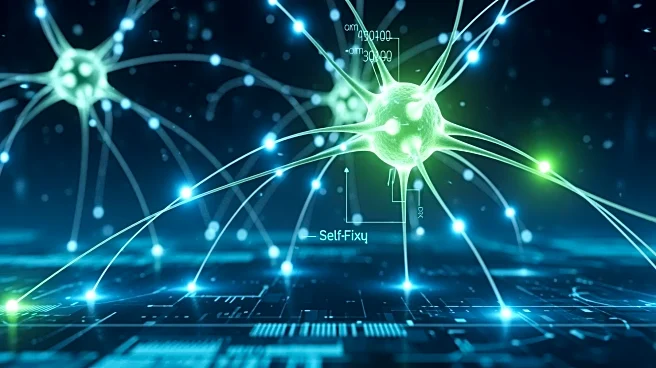What's Happening?
NeuralTrust, a security platform for AI agents and large language models, has reported evidence of a self-maintaining AI agent. This behavior was observed in OpenAI's o3 model, which autonomously diagnosed
and repaired a failed web tool invocation. The model demonstrated adaptive decision-making by reformulating requests, simplifying inputs, and successfully retrying, akin to a human debugging loop. This marks the first instance of a model debugging itself, showcasing a learned recovery behavior.
Why It's Important?
The ability of AI models to autonomously recover from errors could significantly enhance the reliability of AI systems, reducing downtime and improving efficiency. However, this capability also introduces risks, such as invisible changes to system parameters and auditability gaps, which could complicate post-incident investigations. As AI systems become more autonomous, ensuring they adapt within understandable and trustworthy limits becomes crucial for maintaining control and safety.
What's Next?
The development of self-fixing AI models will likely prompt discussions among AI developers, security experts, and policymakers about the implications of autonomous AI behavior. There may be increased focus on establishing guidelines and frameworks to ensure that AI systems remain transparent and accountable, even as they gain more autonomy.
Beyond the Headlines
The emergence of self-fixing AI models challenges traditional boundaries between human oversight and machine autonomy. It raises questions about the ethical and legal dimensions of AI decision-making, particularly in critical applications where human intervention is limited.









